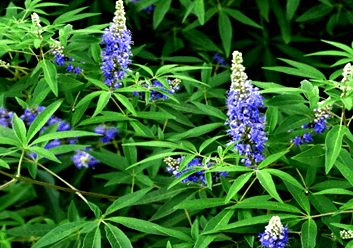IN VITRO EFFICACY OF VITEX AGNUS-CASTUS EXTRACTS AGAINST TRICHOMONAS VAGINALIS: A POTENTIAL THERAPEUTIC APPROACH
Keywords:
Drug discovery, parasitic diseases, sexually transmitted diseases, treatment failure, Trichomonas vaginalisAbstract
Aim and objectives: Trichomonas vaginalis is the most prevalent nonviral sexually transmitted infection globally. The current treatment, 5-nitroimidazole derivatives has raised concerns as a result of drug reliance, allergies, and drug resistance, driving efforts to identify alternative therapies. The Vitex species recognized for their pharmacological attributes including anti-inflammatory, antibacterial, antifungal, and antimicrobial properties are promising candidates for further investigation.
Methods: In this study, the potential of Vitex agnus-castus extracts against T. vaginalis was explored. The water, ethanol, and 60% aqueous ethanol extracts from both leaves and fruits were examined for their effects on metronidazole (MET)-resistant (TV 50143) and sensitive strains (TV-78). Cytotoxicity was evaluated on L929 mouse fibroblast cells to determine the minimum lethal dose for each extract under aerobic and anaerobic conditions.
Results: Antitrichomonial activity, cytotoxic activity and Selectivity Index (SI) values revealed distinct efficacy profiles. Leaf water extract displayed a balanced selectivity profile, while leaf 60% ethanol extract showed moderate to high selectivity. The fruit 60% ethanol extract exhibited significantly elevated selectivity with SI values of 2 and 1 under aerobic and anaerobic conditions, respectively, for the MET-sensitive reference strain, and 3 and 5, respectively, for the MET-resistant reference strain.
Conclusion: These findings underscore the potential of the fruit 60% ethanol extract as a promising candidate for future drug development. Further investigations into its mechanisms and optimization are warranted to enhance its efficacy against T. vaginalis.

Peer Review History:
Received 13 May 2024; Reviewed 15 July 2024; Accepted 21 August; Available online 15 September 2024
Academic Editor: Dr. Amany Mohamed Alboghdadly , Ibn Sina National College for Medical Studies in Jeddah, Saudi Arabia, amanyalboghdadly@gmail.com
, Ibn Sina National College for Medical Studies in Jeddah, Saudi Arabia, amanyalboghdadly@gmail.com
Reviewers:
 Prof. Ali Gamal Ahmed Al-kaf, Sana'a university, Yemen, alialkaf21@gmail.com
Prof. Ali Gamal Ahmed Al-kaf, Sana'a university, Yemen, alialkaf21@gmail.com
 Dr. Marwa A. A. Fayed, University of Sadat City, Egypt, maafayed@gmail.com
Dr. Marwa A. A. Fayed, University of Sadat City, Egypt, maafayed@gmail.com
 Dr. Sangeetha Arullappan, Universiti Tunku Abdul Rahman, Malaysia, sangeetha@utar.edu.my
Dr. Sangeetha Arullappan, Universiti Tunku Abdul Rahman, Malaysia, sangeetha@utar.edu.my
Downloads

Published
How to Cite
Issue
Section

This work is licensed under a Creative Commons Attribution-NonCommercial 4.0 International License.









 .
.